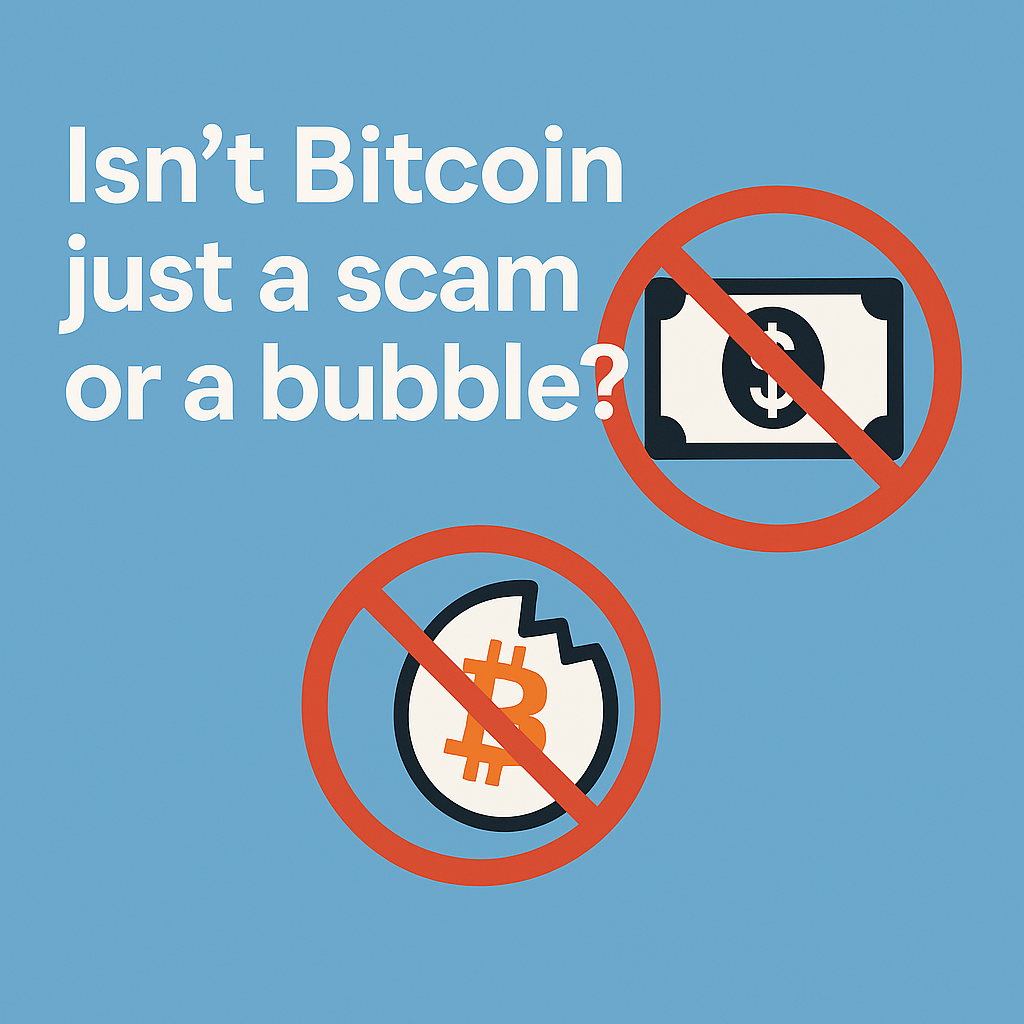You’ve likely heard the skepticism surrounding Bitcoin. Is it just a fleeting trend, a risky gamble, or even worse, a deliberate scam? It’s a valid question, and one we’ll address head-on.
Many people have concerns, and it’s important to separate fact from fiction. Let’s tackle a common misconception:
Myth: Bitcoin is a speculative bubble or a Ponzi scheme.
This is a frequent criticism, often fueled by media headlines focusing on price volatility. It’s easy to see Bitcoin’s price fluctuations and jump to the conclusion that it’s unsustainable or designed to enrich early adopters at the expense of later ones.
Reality: Bitcoin is a decentralized monetary network with a fixed supply (21 million coins). Unlike a Ponzi scheme, it has no central entity promising returns. Its value comes from scarcity, security, and increasing global adoption.
Let’s break down why this reality is so important:
- Decentralized Network: Bitcoin isn’t controlled by a single person, company, or government. This distributed nature makes it resistant to censorship and single points of failure, unlike traditional financial systems.
- Fixed Supply: There will only ever be 21 million Bitcoins created. This inherent scarcity is a fundamental part of its design and a key driver of its value proposition. Think of it like a digital form of gold with a known, limited quantity.
- No Central Entity Promising Returns: Ponzi schemes rely on attracting new investors to pay off earlier ones, with a central figure orchestrating the operation and promising guaranteed returns. Bitcoin has no such central figure making promises. Its value is determined by the open market forces of supply and demand.
- Value Driven by Scarcity, Security, and Adoption:
- Scarcity: As mentioned, the limited supply creates inherent value as demand grows.
- Security: Bitcoin’s blockchain technology is incredibly secure, utilizing cryptography to protect transactions and prevent counterfeiting.
- Increasing Global Adoption: More and more individuals, businesses, and even institutions are recognizing the potential of Bitcoin as a store of value, a medium of exchange, and a hedge against traditional financial systems.
Think of it this way:
While Bitcoin’s price can be volatile in the short term, this doesn’t automatically equate to a scam or a bubble. Like any emerging technology or asset, it experiences periods of rapid growth and correction.
Key Differences Between Bitcoin and a Ponzi Scheme:
| Feature | Bitcoin | Ponzi Scheme |
|---|---|---|
| Central Authority | Decentralized, no single point of control | Central organizer or entity |
| Source of Value | Scarcity, security, utility, adoption | New investor funds used to pay earlier investors |
| Transparency | Transactions are recorded on a public, immutable ledger (the blockchain) | Often opaque and lacking transparency |
| Guaranteed Returns | No guaranteed returns, value determined by market forces | Promises of high, risk-free returns |
In Conclusion:
It’s crucial to do your own research and understand the fundamentals of Bitcoin before forming an opinion. While the price can be unpredictable, the underlying technology, its decentralized nature, and its fixed supply offer a compelling alternative to traditional financial systems. Dismissing it as simply a scam or a bubble overlooks these crucial aspects and the growing global interest in this innovative technology.
(Gemini)

Leave a Reply